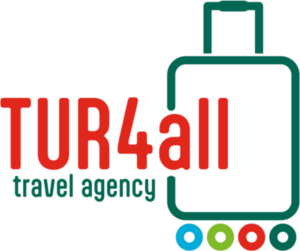Accessible tourism is a growth sector that is transforming not only the way we travel for people with disabilities, but also local and global economies. Investing in accessibility means not only to remove physical barriers, but also open the door to new market opportunities. To improve the infrastructure and to offer services adapted to tourist destinations not only appeal to a demographic group that has been left unattended, but also generate additional revenue and strengthen their economies. In this article, we will discuss how the accessible tourism has a positive impact on the economy, both locally and globally.
1. Accessible tourism: an industry of great economic potential
Accessible tourism is not only a question of human rights and social equity, but also an economic opportunity significant. According to the World Tourism Organization (UNWTO), the market for accessible tourism represents a significant share of the tourism market in the world, with more than a billion people with some form of disability around the world. In addition, this group does not travel alone: for each person with a disability who travel, there is often at least one companion, which doubles the number of potential tourists.
This market segment has a purchasing power considerable. Persons with disabilities often seek travel experiences of quality and are willing to pay more for services that are tailored. When the destinations invest in accessibility, they not only improve the experience of tourists, but also position themselves as leaders in inclusive, attracting a large number of visitors.
2. Investment in accessibility: long-term benefits
Invest in infrastructure and services that are accessible, as they have done in Germany to Düsseldorf, it may seem expensive at first, but the return on investment is substantial in the long term. To remove physical barriers and offer services in inclusive tourist destinations you expand your potential customer base. Hotels, restaurants, museums, and other attractions that are adapting their facilities to people with disabilities become accessible not only for this group, but also for families with small children, seniors, and travelers with temporary needs for mobility.
For example, the city of Barcelona has been a pioneer in this field. With its long-term commitment to accessibility, the city has developed infrastructure that will allow people with disabilities to enjoy their beaches, public transport and its major tourist attractions, such as Sagrada Familia. Thanks to these measures, Barcelona has seen a considerable increase in the arrival of tourists with disabilities, who contribute significantly to the local economy.

3. Accessible tourism and the local economy
At the local level, the accessible tourism drives economic growth to create employment and increase the income of small and medium-sized enterprises (SMES). Restaurants, souvenir shops, and accommodations that make its facilities accessible to not only attract tourists with disabilities, but also benefit from the spending of these visitors in the local economy. In addition, the employment related to accessible tourism extends beyond the direct services, generating opportunities in sectors such as construction, technology, and accessibility consulting.
Accessibility can also have a multiplier effect on local economies. For example, when a hotel invests in adapting their facilities, attracts more and more tourists with disabilities, which in turn increases the demand for other services that are accessible, such as transportation and restaurants. This chain of demand generates a steady stream of income for the local economy.
4. Benefits of accessible tourism in the global economy
At the global level, the economic impact of accessible tourism is also significant. Destinations that stand out for their accessibility tend to receive more international tourists, cementing their reputation as places inclusive and modern. In addition, companies that invest in accessibility also tend to highlight in the international arena, allowing them to compete in the global market of tourism.

In addition, the growing awareness about the importance of accessibility has led to the creation of regulations and standards in many countries, which promote the implementation of accessibility standards in the tourism industry. This regulatory approach not only ensures that the targets are more inclusive, but also ensures a steady flow of tourists with special needs.
Accessible tourism may also play a role in the global economic recovery in the aftermath of a crisis, as the pandemic of COVID-19. The offer destinations, inclusive and safe for all types of travelers, countries and regions may attract new tourists, boosting the global economy in a time in which many economic sectors are still in recovery.



